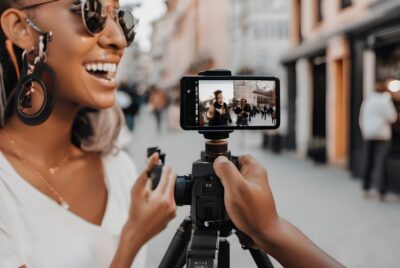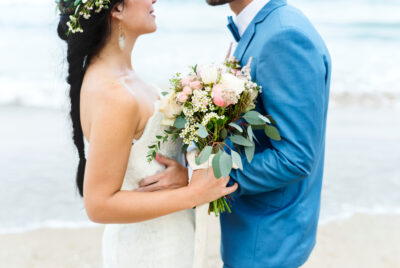Wedding Photography: A Complete Guide for Capturing Magical Moments
Let’s be honest—wedding photography isn’t just about snapping pretty pictures. It’s about freezing time. About preserving emotions. About being part of someone’s most cherished day and making sure every meaningful glance, every joyful tear, and every wild dance move is captured forever. As someone deeply passionate about wedding photography, I want to walk you through everything I’ve learned so you can either shoot your first wedding like a pro—or simply understand what goes on behind the lens.
Why Wedding Photography Matters
Emotional Significance
Think about it—weddings are this beautiful blend of love, joy, and sometimes chaos. There’s a kind of raw, unfiltered emotion that you just don’t find anywhere else. And that’s what makes photographing them so special. You’re not just documenting events; you’re telling a love story.
Lifelong Memories
Photos from a wedding are one of the few tangible things that last long after the cake has been eaten and the confetti swept away. Your work will be part of family albums, framed on walls, shared in slideshows—and maybe even shown to future generations.
>>> Today’s deals for cameras on Amazon CLICK HERE <<<
Preparing for Wedding Photography
Meet the Couple
Understanding Their Story
Before I even think about charging my camera batteries, I meet the couple. Over coffee or a Zoom call, I ask questions like, “How did you meet?” or “What’s your vibe as a couple?” This helps me tailor the shots to reflect their personality.
Building Comfort and Trust
Let’s face it—no one wants a stranger pointing a lens in their face on one of the most important days of their lives. So, I try to build rapport early. That trust shows in the photos.
Scouting the Venue
You wouldn’t walk into a movie set blind, right? Same goes here. I try to visit the venue beforehand. I note the lighting conditions, best angles, and scenic spots for couple portraits. If I can’t visit in person, I study photos and floor plans online.
Creating a Shot List
Shot lists are lifesavers. I work with the couple to create a list of “must-have” shots—first look, grandma’s reaction, sparkler send-off. It keeps me focused and ensures I don’t miss anything important.
Essential Gear for Wedding Photography
Camera Bodies
I always carry two camera bodies. One as a primary, and one as a backup. Weddings are too important to risk equipment failure.
Lenses You Can’t Do Without
I usually go with:
-
24-70mm for versatility
-
70-200mm for those candid, from-a-distance moments
-
50mm for dreamy portraits
Prime lenses can be a blessing for low-light situations like indoor ceremonies.
Lighting and Accessories
Natural light is my best friend, but it’s not always reliable. I pack:
-
External flashes
-
Reflectors
-
Extra batteries and memory cards
-
Tripod or monopod for long shots or group photos
Styles of Wedding Photography
Traditional
Posed, planned, and classic. Think of it as the “family album” style. It’s reliable and expected by many couples.
Photojournalistic
Here’s where the magic happens—documentary-style, candid moments. I blend into the background and let the day unfold naturally.
Editorial
Think fashion-magazine glam. Carefully composed, often dramatic. Best for couples who love high-style, cinematic imagery.
Fine Art
This is all about artistic expression. Unique lighting, creative compositions, and often edited to feel like a painting.
>>> Today’s deals for cameras on Amazon CLICK HERE <<<
Tips for Capturing Perfect Shots
Candid Moments vs. Posed Shots
Sure, group shots are important, but it’s those in-between moments—the groom tearing up, the flower girl playing in the corner—that tell the real story. I keep my eyes peeled for the moments no one else sees.
Managing Lighting Challenges
Whether it’s harsh sunlight or dim candlelit dinners, weddings rarely have perfect lighting. I use fast lenses and bump up my ISO when needed—but always test lighting at key locations ahead of time.
Working With the Wedding Party
These folks can either be your biggest ally or a challenge. I make it a point to be friendly, give clear directions, and stay cool under pressure.
Post-Wedding Workflow
Culling and Selecting the Best Shots
I might shoot 3000+ photos at a wedding, but no one wants to see 17 near-identical cake-cutting shots. I cull quickly, keeping only the moments that matter.
Editing for Timelessness
My editing goal? Enhance without distracting. Clean tones, natural colors, and just enough retouching to keep everyone looking their best without looking like wax figures.
Delivering the Final Product
I use online galleries and USB drives. And I always include a sneak peek within a couple of days—it builds excitement and shows professionalism.
Building a Wedding Photography Portfolio
Showcasing Versatility
Couples love to see that you can do it all—sunny beach weddings, cozy barn receptions, big-city affairs. Your portfolio should reflect that.
Highlighting Emotions
Don’t just show pretty venues. Show moments. Laughter, tears, hugs. That’s what people connect with.
Marketing Yourself as a Wedding Photographer
Social Media & Website Tips
Instagram is your virtual storefront. I post consistently, use behind-the-scenes stories, and include call-to-actions like “Inquire for your 2025 date!” My website has to be fast, mobile-friendly, and full of testimonials.
Client Testimonials & Word-of-Mouth
Happy couples are your best marketers. I ask for reviews and often include a thank-you card in the photo delivery with a gentle nudge to spread the word.
Common Mistakes to Avoid
Overpacking or Underpacking Gear
Packing everything I own? Overkill. Forgetting batteries? Disaster. I now use a detailed checklist the night before.
Not Having a Backup Plan
Always expect the unexpected. Rain? I’ve got umbrellas. Sudden gear failure? I’ve got spares. Timeline delays? I build buffer time into the schedule.
Conclusion
Wedding photography is part artistry, part logistics, and part emotional storytelling. It’s not easy—but it’s wildly rewarding. You’re not just clicking a shutter. You’re preserving love stories in pixels. Whether you’re shooting your first wedding or planning your own, I hope this guide gave you some real, usable insight into what makes wedding photography so magical.
>>> Today’s deals for cameras on Amazon CLICK HERE <<<
FAQs
1. What is the best camera for wedding photography?
While there’s no single “best” camera, full-frame DSLRs or mirrorless models like the Canon R6 or Sony A7 IV offer excellent performance in all conditions.
2. How do you deal with difficult lighting during weddings?
Use fast lenses, bounce flash where possible, and always scout the lighting situation ahead of time to be prepared.
3. How many photos should I deliver from a wedding?
It depends, but I usually deliver between 500-800 fully edited images for a full-day wedding.
4. Do I need a second shooter?
It’s highly recommended for larger weddings or when events overlap—like cocktail hour and bride/groom portraits.
5. How do I price my wedding photography services?
Factor in your experience, time, gear costs, editing hours, and market rates. Don’t undervalue yourself—remember, you’re capturing irreplaceable moments.
Further reading
Check out our other relevant articles:
Here are two valuable resources offering educational guidance and commentary on wedding photography:
-
“10 Essential Wedding Photography Tips from a Famed Photographer” – Bridebook
In this insightful article, award-winning London photographer John Nassari shares his top ten tips for professional wedding photographers. He emphasizes the importance of practicing regularly, researching cultural wedding traditions, and maintaining an up-to-date portfolio that reflects your evolving style. Nassari’s advice is particularly beneficial for photographers aiming to specialize in diverse wedding styles and cultural ceremonies. -
“27 Essential Wedding Photography Tips All Wedding Photographers Should Know” – Parker Photographic
This comprehensive guide offers practical tips for capturing stunning wedding photos. It covers techniques such as using a large aperture to blur backgrounds, changing shooting perspectives to add variety, and the importance of getting shots right in-camera to minimize post-processing time. These tips are invaluable for photographers seeking to enhance their technical skills and efficiency.
Both resources provide in-depth advice that complements the topics discussed in the article, offering further insights into the art and business of wedding photography.




